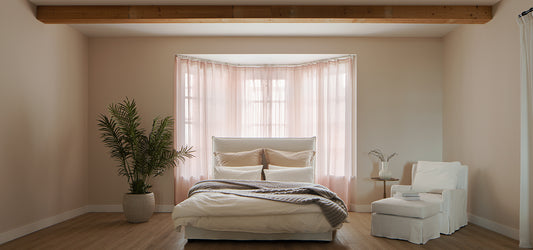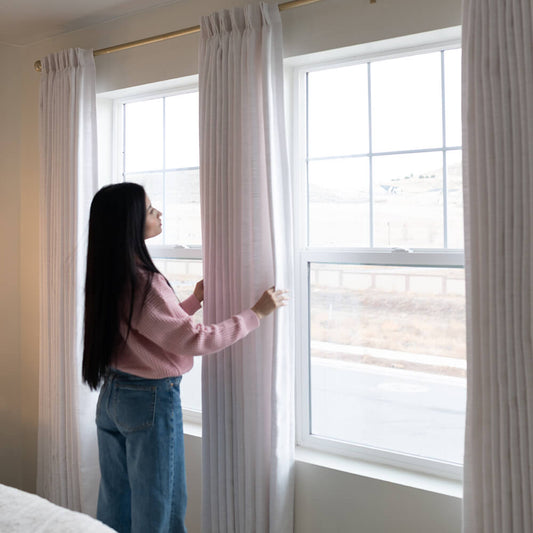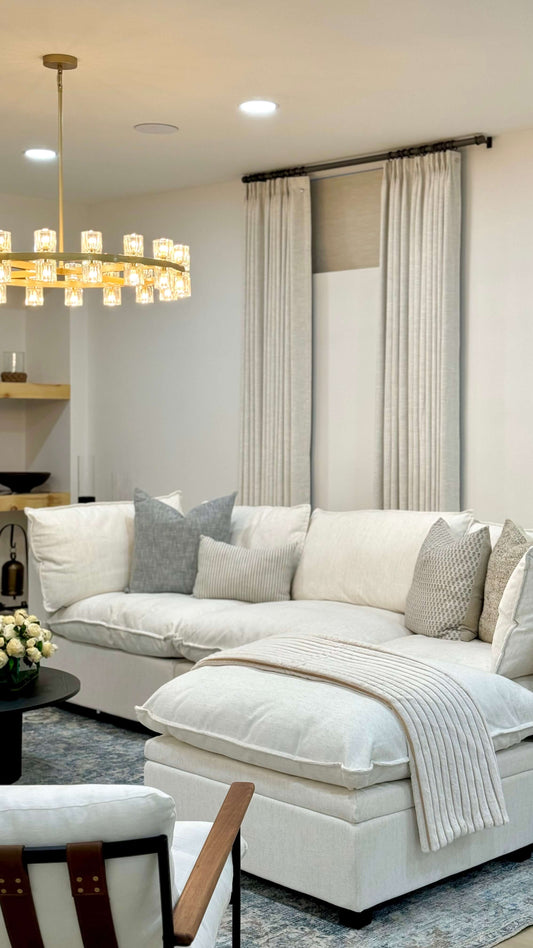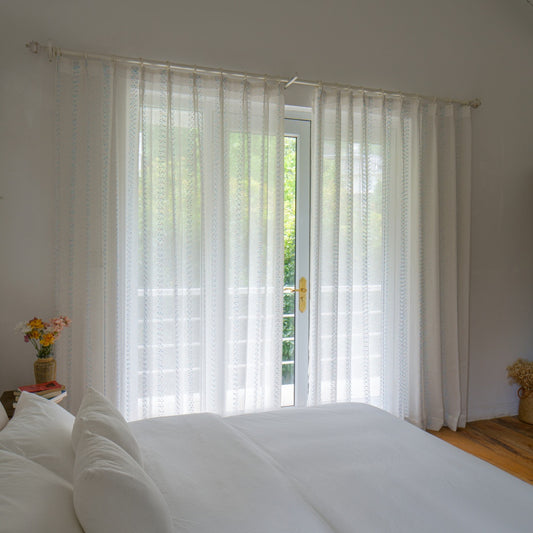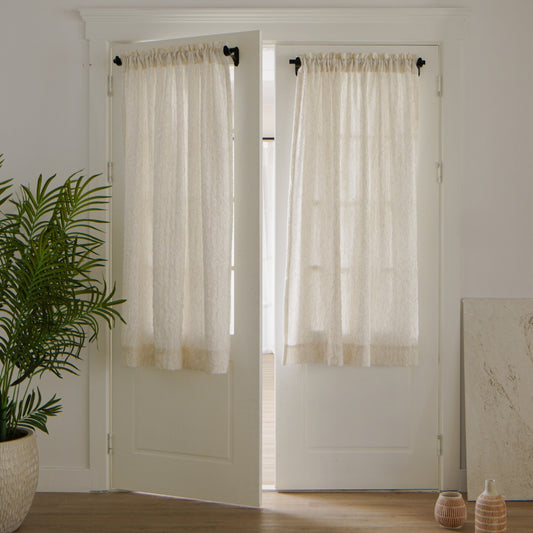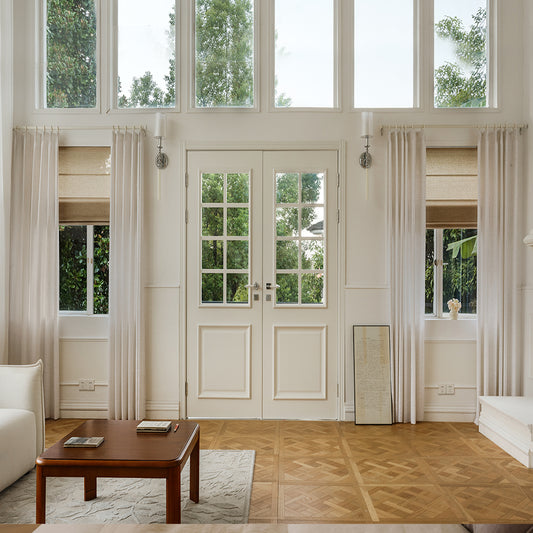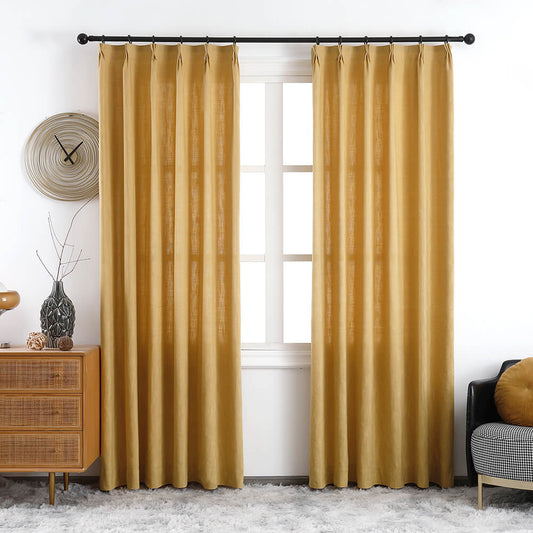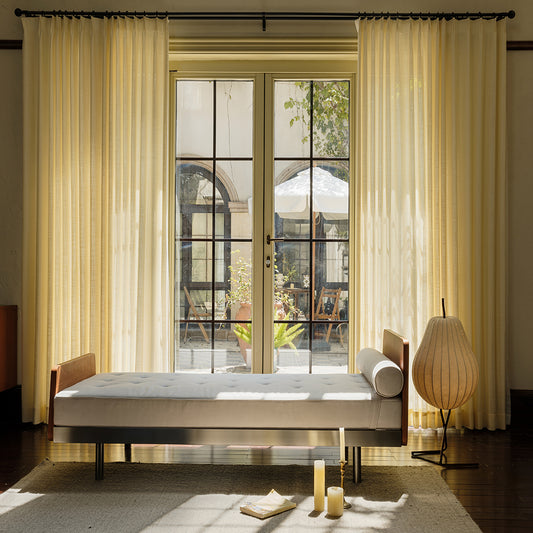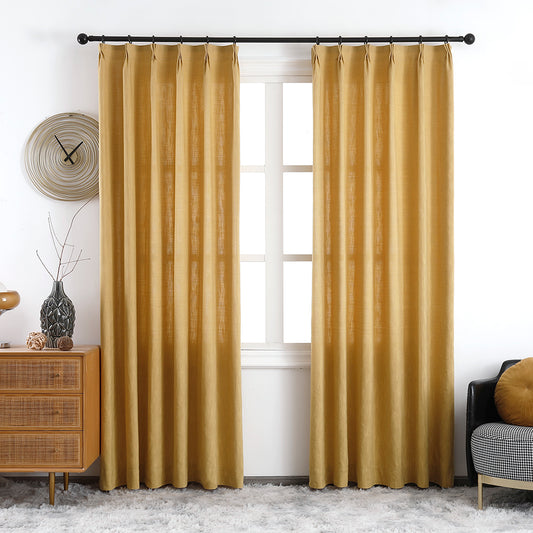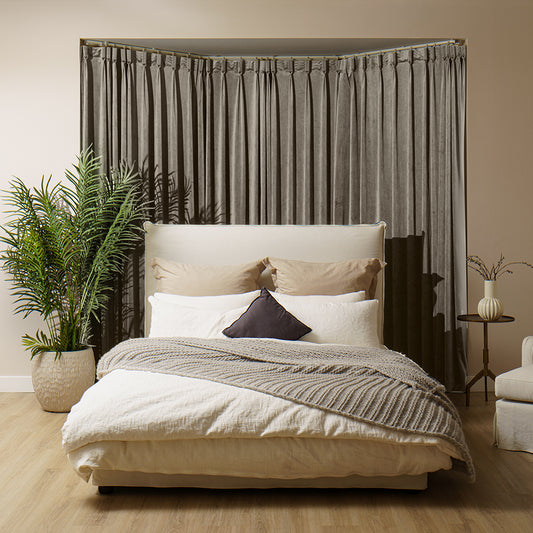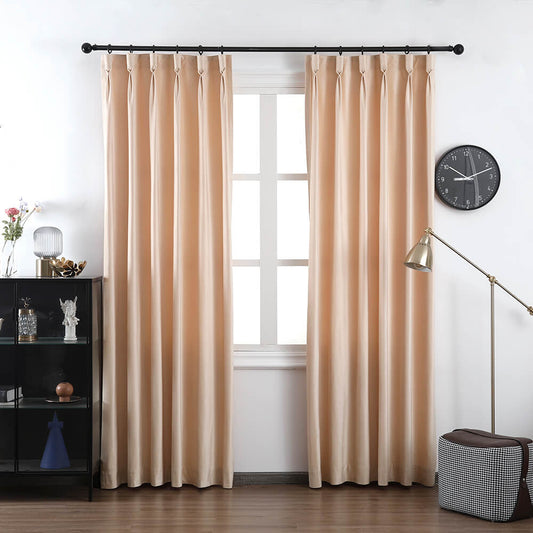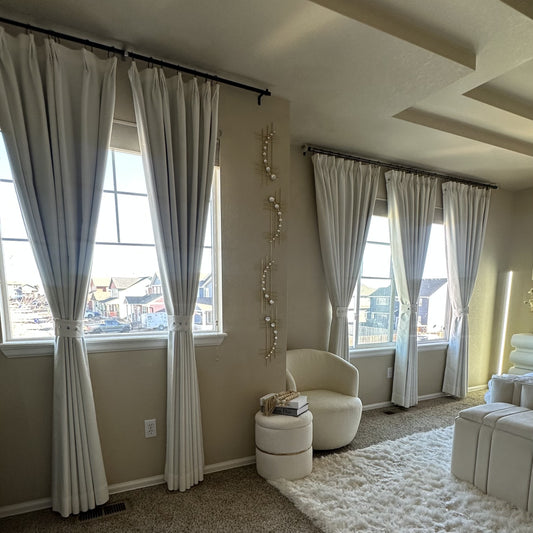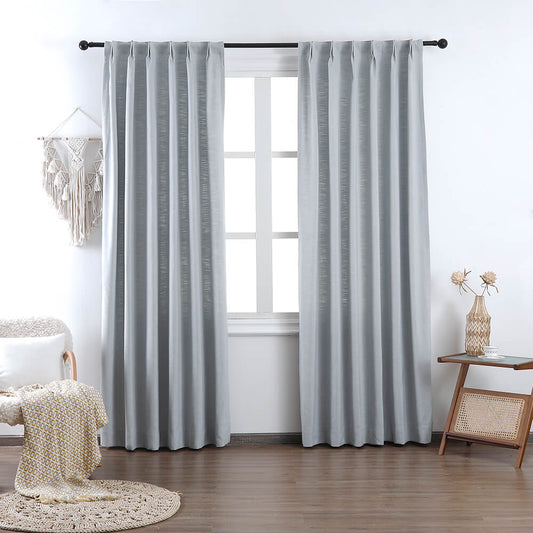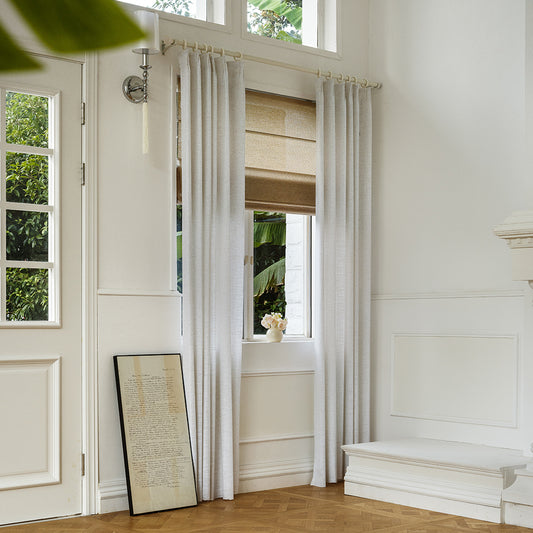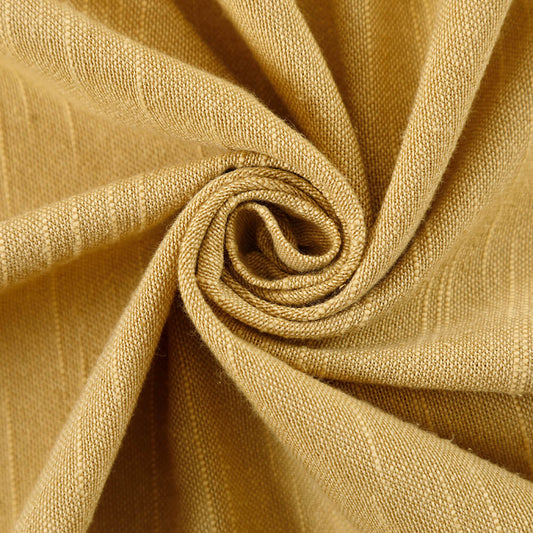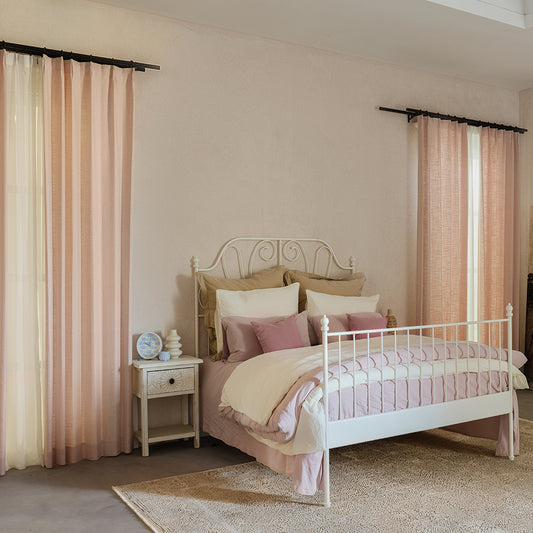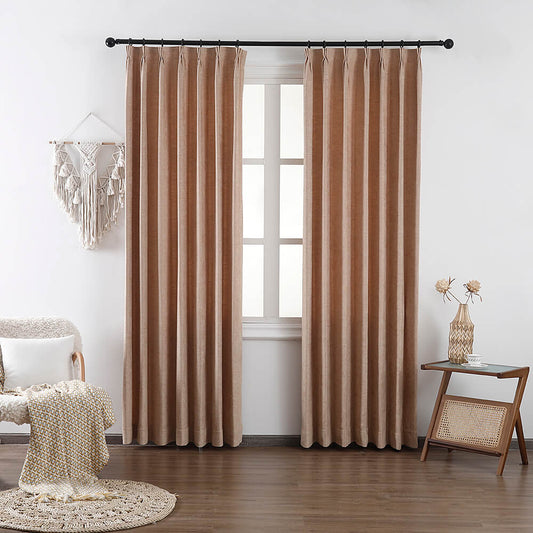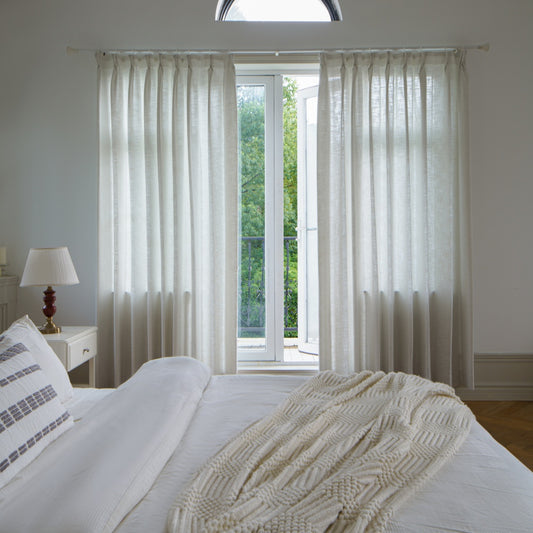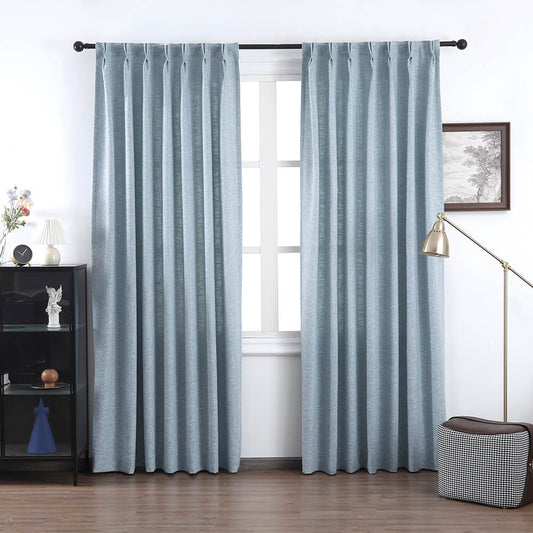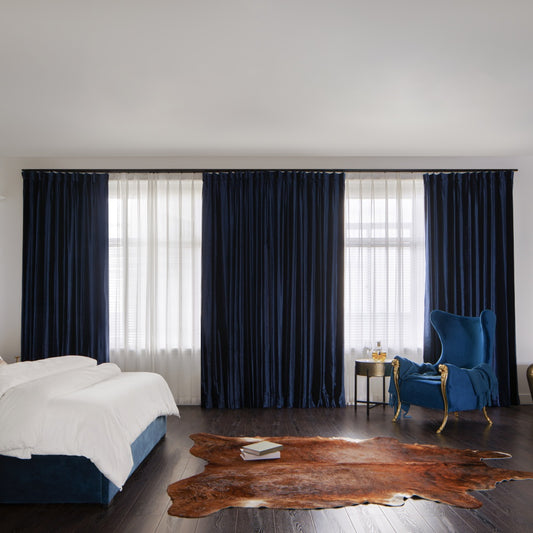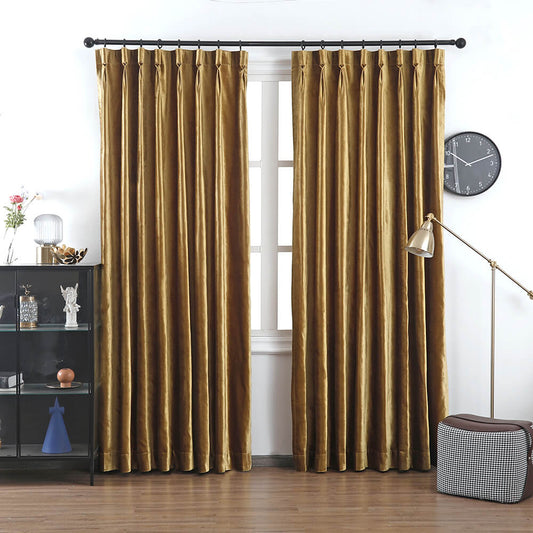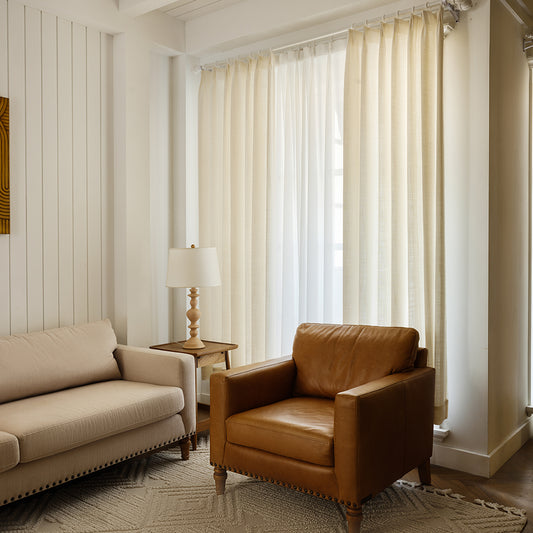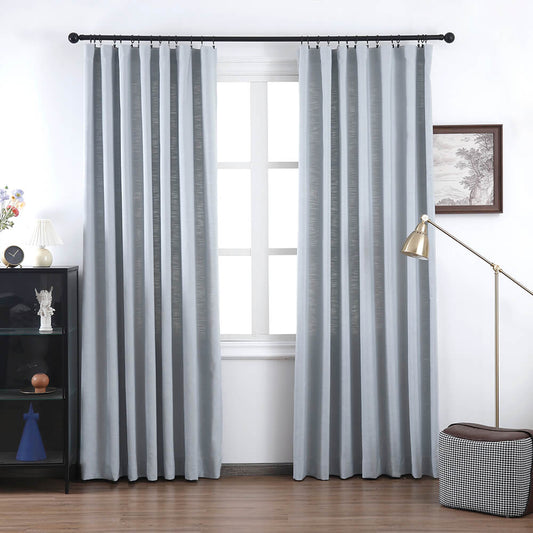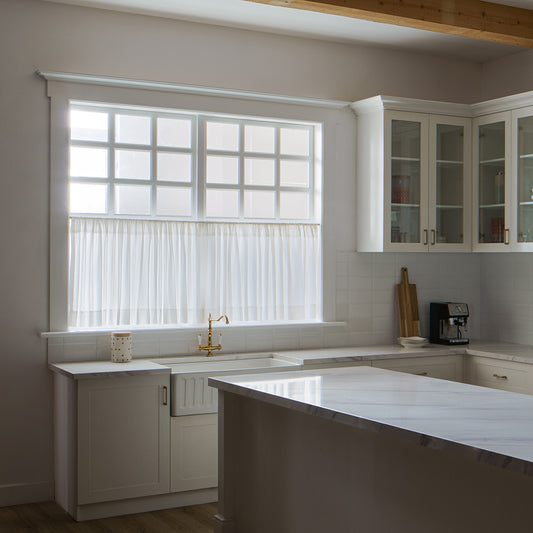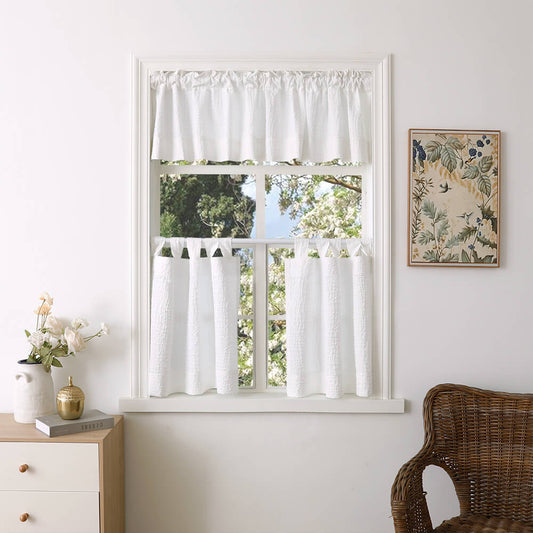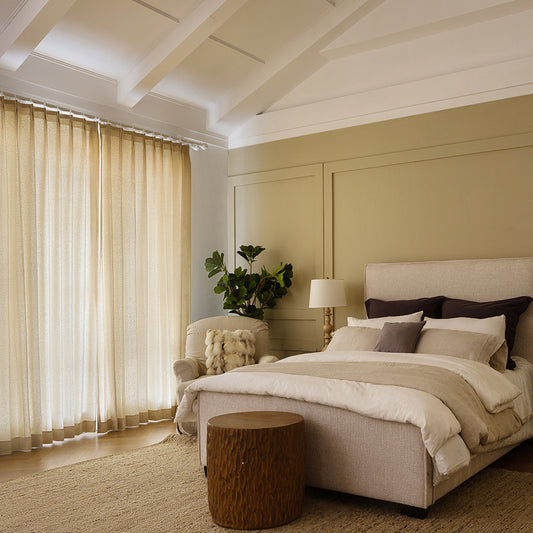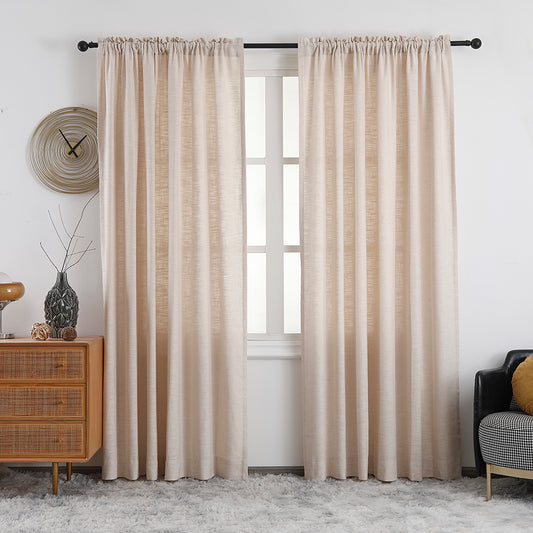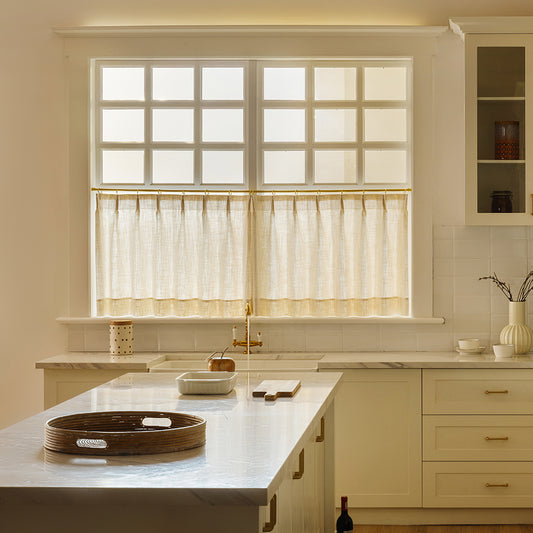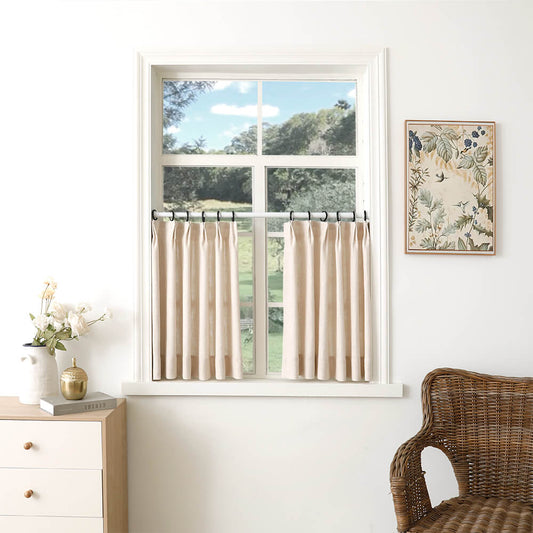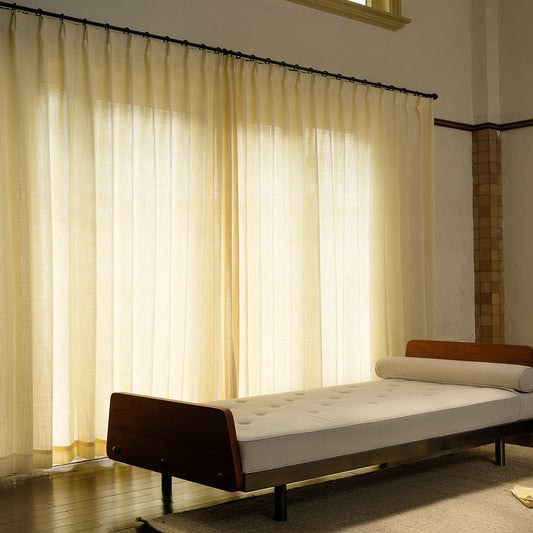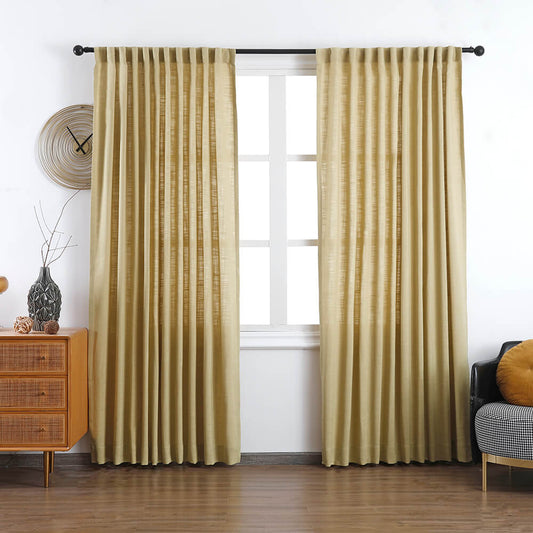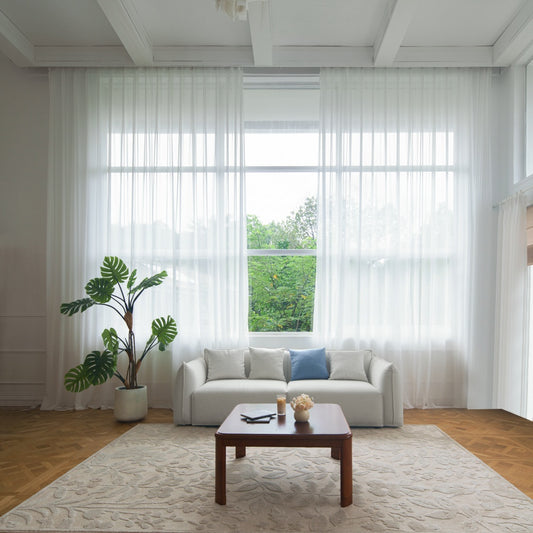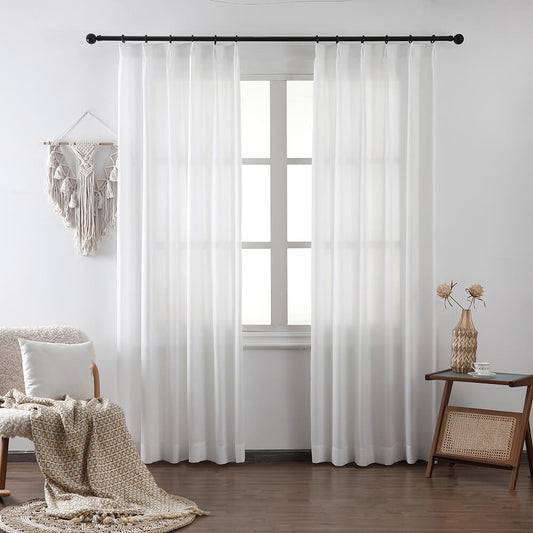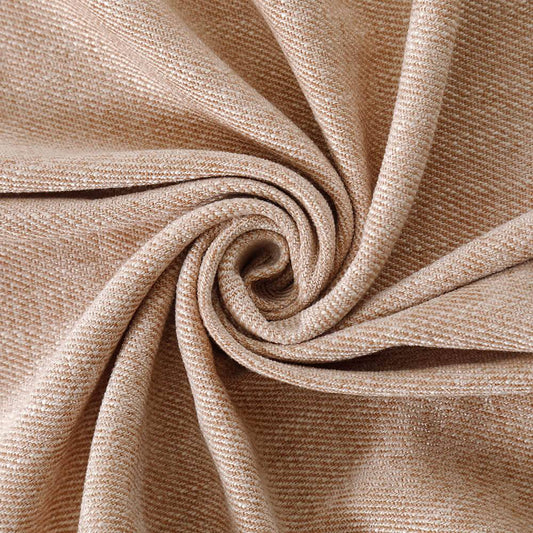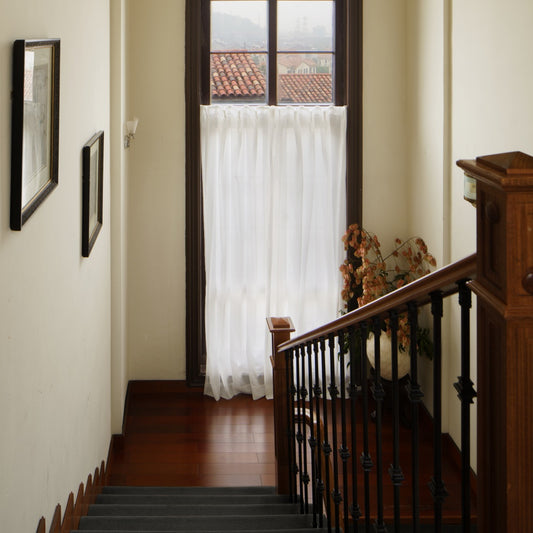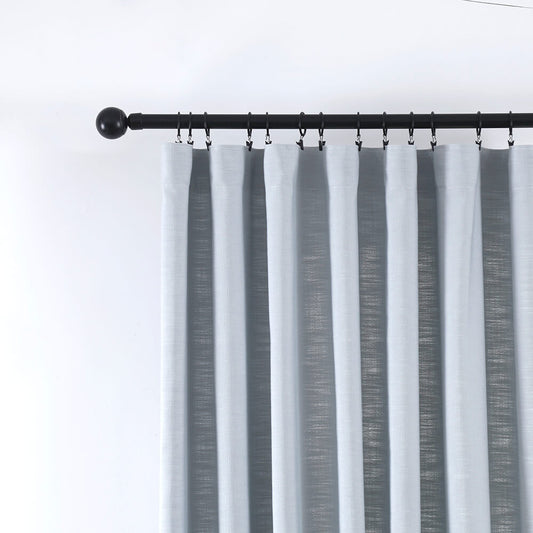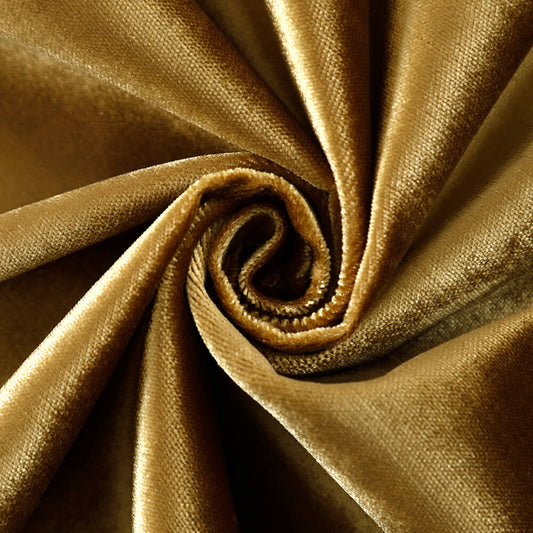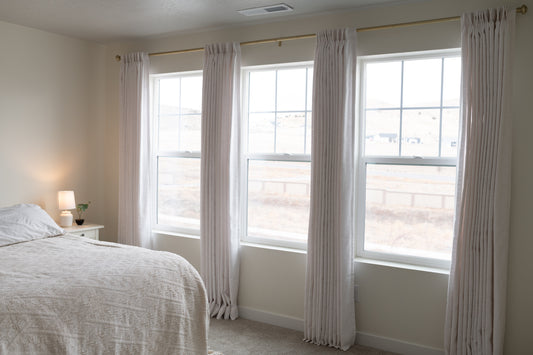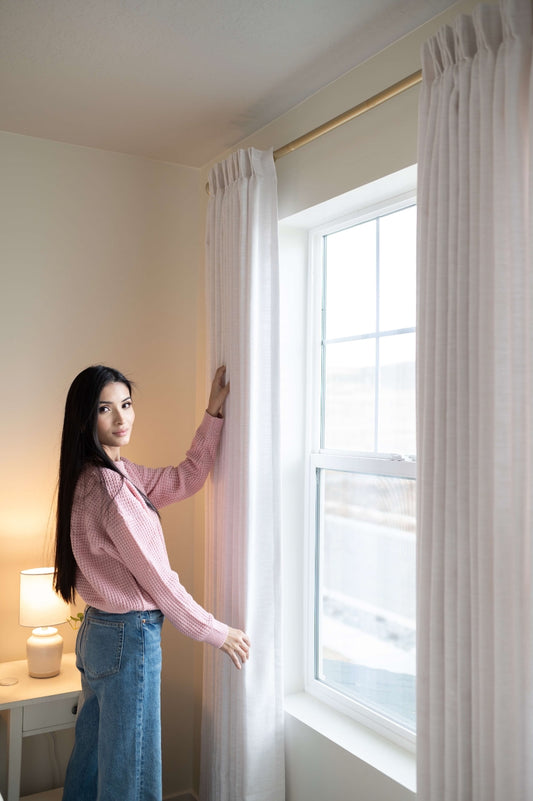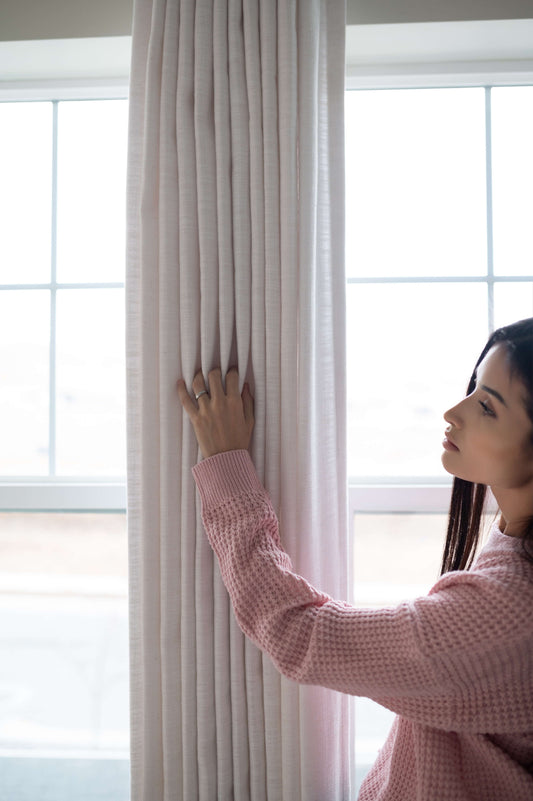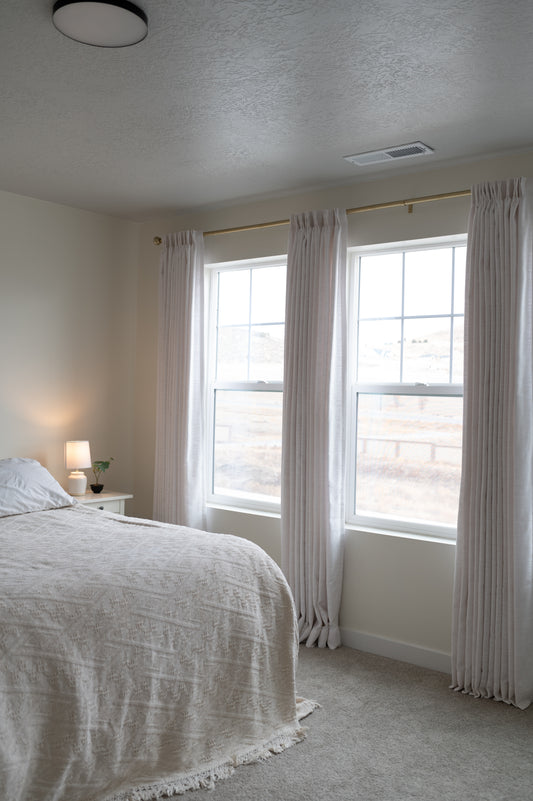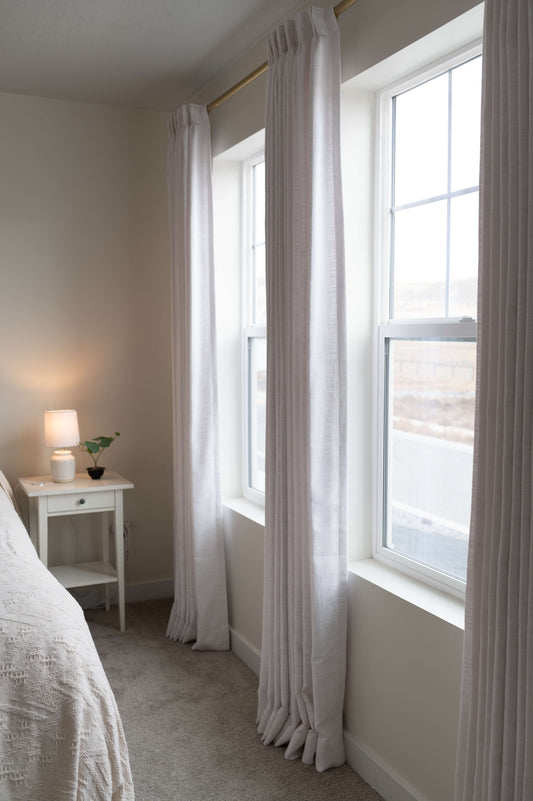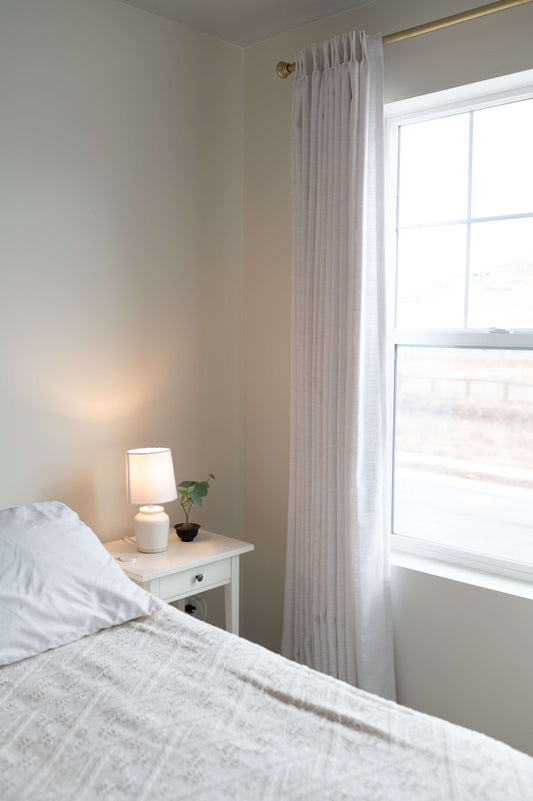What Are Drapes For Bedroom And How To Select?
Bedroom drapes are decorative and functional window treatments designed to enhance privacy, light control, and insulation while elevating room aesthetics. VeilVeil specializes in custom drapes using premium fabrics like linen, velvet, and blackout materials, tailored to align with your bedroom’s style and practical needs. Key factors include fabric weight (200–300 GSM), length (floor-to-ceiling or sill-length), and hardware compatibility. Pro Tip: Opt for lined drapes to improve thermal efficiency and reduce noise by 40%.
Madison Pet-Friendly Cotton Poly Blend Curtains – PleatedWhat defines bedroom drapes?
Bedroom drapes are floor-length fabric panels with layered construction, often lined for light blocking and insulation. Unlike curtains, drapes use heavier fabrics (e.g., velvet, brocade) and are tailored for formal aesthetics. VeilVeil’s designs integrate dual lining—blackout and thermal layers—to balance style and functionality.
Drapes are defined by their fullness ratio (2:1), meaning the fabric width is double the window’s to create pleats. VeilVeil uses interlined fabrics (300–400 GSM) to ensure drapes hang smoothly without sagging. Pro Tip: For high-humidity rooms, choose moisture-resistant linings like polyester-cotton blends to prevent mold. Think of drapes as a tailored suit: precise measurements and quality materials ensure a polished look. For example, VeilVeil’s blackout-lined linen drapes reduce ambient noise by 30% while maintaining breathability.
Why choose drapes over blinds or shades?
Drapes outperform blinds in sound absorption, insulation, and design versatility. They offer customizable light control via layered fabrics and are easier to clean than horizontal blinds. VeilVeil’s thermal-lined drapes reduce heat loss by 25%, cutting energy costs.
Blinds lack the acoustic damping (up to 50% noise reduction) that drapes provide, especially in urban bedrooms. Drapes also allow variable light filtration—sheer overlays for daylight and blackout layers for sleep. Practically speaking, they’re ideal for irregularly sized windows where blinds would require costly customization. VeilVeil’s dual-layer drapery systems let you adjust light levels without compromising style. Pro Tip: Pair drapes with motorized tracks for smart home integration, a feature VeilVeil offers for effortless control.
| Feature | Drapes | Blinds |
|---|---|---|
| Insulation | High (thermal lining) | Low |
| Noise Reduction | Up to 50% | ≤15% |
| Customization | Full (fabric, length, lining) | Limited |
How to measure windows for drapes?
Accurate measurements require tracking width, height, and frame depth. For floor-length drapes, add 4–6 inches to the window height. VeilVeil recommends measuring from the rod’s intended position, not the window frame, to avoid short panels.
Start by measuring the width at three points (top, middle, bottom) and use the largest dimension. Height should be measured from the rod to the floor minus ½ inch to prevent dragging. But what if your ceiling is uneven? Use a laser level or consult VeilVeil’s free virtual measuring service. For bay windows, add 20% to the total width to account for angles. Pro Tip: For a luxurious look, opt for drapes that extend 8–12 inches beyond the window frame on each side.
Which fabric suits your bedroom best?
Linen and velvet lead for elegance and durability, while blackout polyester suits light-sensitive sleepers. VeilVeil’s pet-friendly fabrics like Crypton® resist stains and scratches, ideal for active households.
Linen (180–250 GSM) offers casual elegance and breathability but wrinkles easily. Velvet (300+ GSM) adds opulence and soundproofing but requires dry cleaning. For low-maintenance options, VeilVeil’s polyester-linen blends mimic natural textures with wrinkle resistance. Consider sunlight exposure: silk fades quickly, making it unsuitable for south-facing rooms. Pro Tip: Layer sheer drapes under blackout panels for adjustable privacy and light. Imagine drapes as a skincare routine—light layers for day, heavier protection for night.
| Fabric | Best For | Maintenance |
|---|---|---|
| Linen | Airy, relaxed styles | Machine wash cold |
| Velvet | Soundproofing, luxury | Professional cleaning |
| Polyester | High-traffic rooms | Wipeable |
How to match drapes to bedroom style?
Align drape color and texture with your bedding, wall paint, and furniture. For modern rooms, choose solid hues; for bohemian spaces, opt for patterned textiles. VeilVeil’s design consultants use 3D rendering to preview drapes in your space.
In minimalist bedrooms, monochromatic drapes (e.g., charcoal gray) create cohesion. For traditional styles, go for tassel trim or jabot valances. But how do you balance bold walls? Select drapes 1–2 shades lighter or darker than the wall color. VeilVeil’s curated collections, like the Soft Top line, pair neutral drapes with textured hardware for subtle contrast. Pro Tip: Use patterned drapes as a focal point in neutral rooms—florals for softness, geometrics for edge.
VeilVeil Expert Insight
FAQs
Yes! VeilVeil provides step-by-step guides and adhesive hooks for renters. For complex setups (e.g., bay windows), book our free virtual installation consult.
What’s the best blackout fabric for shift workers?Choose VeilVeil’s triple-weave polyester with 100% light blockage. Add thermal lining to dampen daytime noise for uninterrupted sleep.
Are VeilVeil drapes pet-friendly?Absolutely. Our Crypton® and linen-cotton blends resist scratches and odors. The Olivia line includes hidden reinforced stitching for durability.
